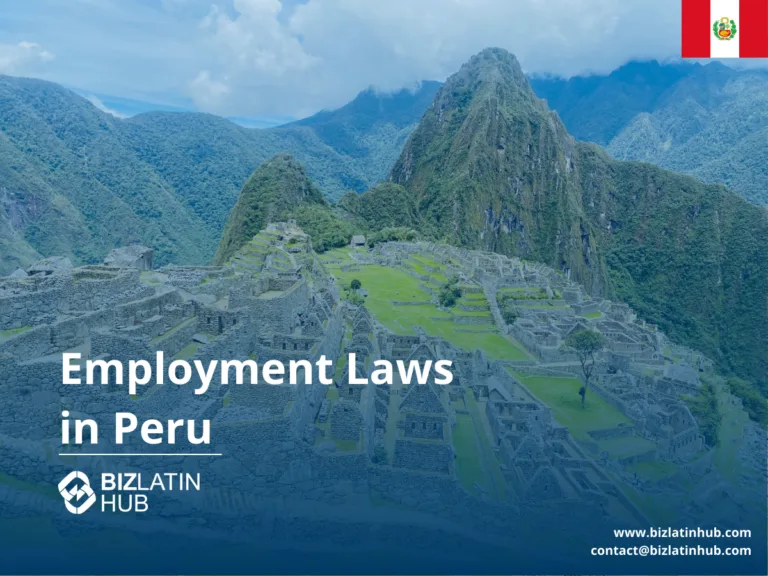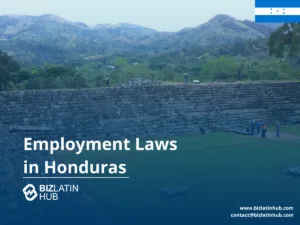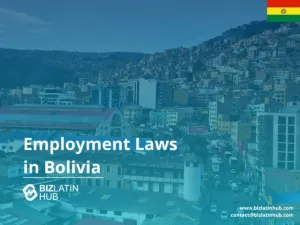Peru’s employment regulations are set out in the Labor Law and apply to both local and foreign employers. This 2025 guide outlines contract types, employee rights, termination rules, and compliance obligations for hiring in Peru, for instance after you incorporate a company in Peru.
Key Takeaways
| What are the working hours mandated by employment laws in Peru? | Employment law in Peru sets a maximum work schedule of 8 hours per day and 48 hours per week, not including overtime. |
| What is the minimum wage in Peru? | The current minimum wage as of January 2025 is S/1,130 (aprox USD$300). |
| Types of Employment Contracts in Peru | Fixed-term. Indefinite-term. Contracts for a set task. |
| What percentage of an employee’s salary is contributed to social security in Peru? | The applicable rate of the SNP & SPP is approximately 13% and will be paid by the employer, deducted from the employee’s salary, and paid directly to the administrator of the pension. |
Overview of Peruvian Labor Law
Below you will find some essential regulations considering employment laws in Peru:
- The minimum wage for the year 2025: S/1,130 (around USD$300).
- Working days: The maximum working days allowed per week is 6 days, with 8 hours of working per day.
- Lunch break: An employee has the right to a minimum break of 45 minutes.
- Overtime: The amount of the surcharge has to be agreed between employee and employer. However, the first 2 hours cannot be less than 25% of the total remuneration of the employee. For every extra hour, the surcharge cannot be less than 35% per hour.
- Weekly rest: An employee has the right to a 24-hour rest time per week- this usually lands on Sunday for most. Nevertheless, the employee can work on Sunday and take another day off during the week. If the employee works seven days a week, the employer has to pay an extra 100% of the daily salary on the extra day worked.
- Night shift: These begin officially at 10:00 p.m. and end at 6:00 a.m. The employees’ remuneration cannot be lower than the monthly minimum wage, and they have to receive a surcharge of 35%.
- Trial term: A trial of three months period is for regular staff – this trial period can be extended an additional three months. During this term, the employee does not have any rights of arbitrary dismissal. Trusted or qualified employees can be contracted on an on-trial basis for up to 6 months and up to 12 months for trial management positions.
- Part-time Employment: A part-time employer usually works less than four hours a day. But on six days-week, a part-time employee might work up to a maximum of 24 hours. If there are five working days per week, the working hours must be less than 20 hours per week.
- Pension System: The employee may choose to join the National Pension System (SNP) or the Private Pension System (SPP). The applicable rate of the SNP & SPP is approximately 13% and will be paid by the employer, deducted from the employee’s salary, and paid directly to the administrator of the pension.
Types of Employment Contracts in Peru
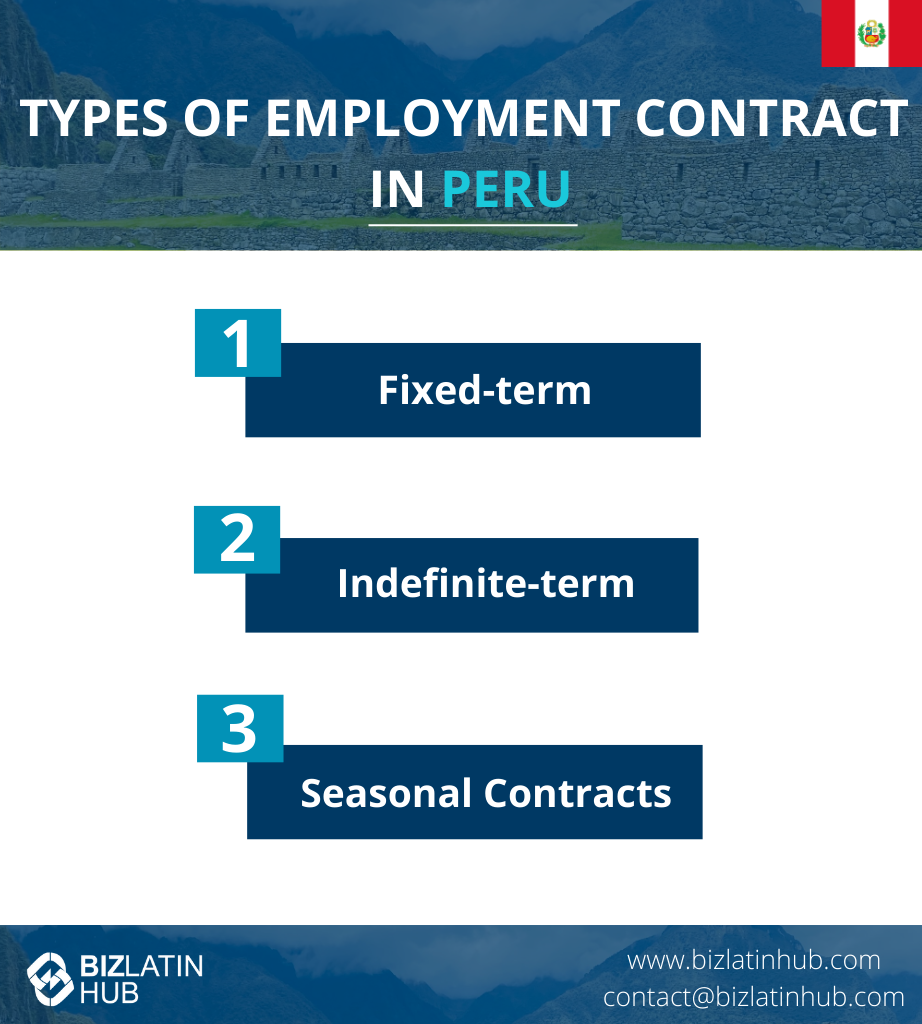
Peru recognizes both indefinite and fixed-term contracts. The latter is only applicable under certain conditions and has a five year maximum.
Indefinite contracts
These are standard work agreements and are expected to be given to the vast majority of formal employees. They must follow all labor laws in Peru and confer all regular benefits on the employee.
Fixed-term and temporary contracts
These are given to workers for a specific length of time, generally in order to to fulfil a contract for a single project or to cover a temporary need for an employer. They cannot last more than five years.
Work Hours, Rest, and Paid Leave
The maximum number of working days allowed per week is 6 days, with no more than 8 hours of working per day before overtime is accrued. The amount of the overtime surcharge has to be agreed between employee and employer. However, the first 2 hours cannot be less than 25% of the total remuneration of the employee. For every extra hour, the surcharge cannot be less than 35% per hour.
An employee has the right to a minimum break of 45 minutes and the right to a 24-hour rest time per week. This usually lands on Sunday for most. Nevertheless, the employee can work on Sunday and take another day off during the week. If the employee works seven days a week, the employer has to pay an extra 100% of the daily salary on the extra day worked.
Night shifts begin officially at 10:00 p.m. and end at 6:00 a.m. The employees’ remuneration cannot be lower than the monthly minimum wage, and they have to receive a surcharge of 35%. An employee has the right to 30 calendar days of paid vacation per year. The wage is equivalent to the monthly salary. An employee of a small and micro company has the right to 15 calendar days of paid vacation a year.
Maternity leave is also covered. In total, the length to leave for maternity is 98 days: 49 days for prenatal leave and 49 days of postnatal leave. An exception is given when an additional child is born or if the new child has a disability. After the official 98 days period, the period of the lactation period (Lactancia maternal) begins. Until the newborn is 1 year old, the mother has the right to be away from the workspace for 1 hour per day, to breastfeed the child.
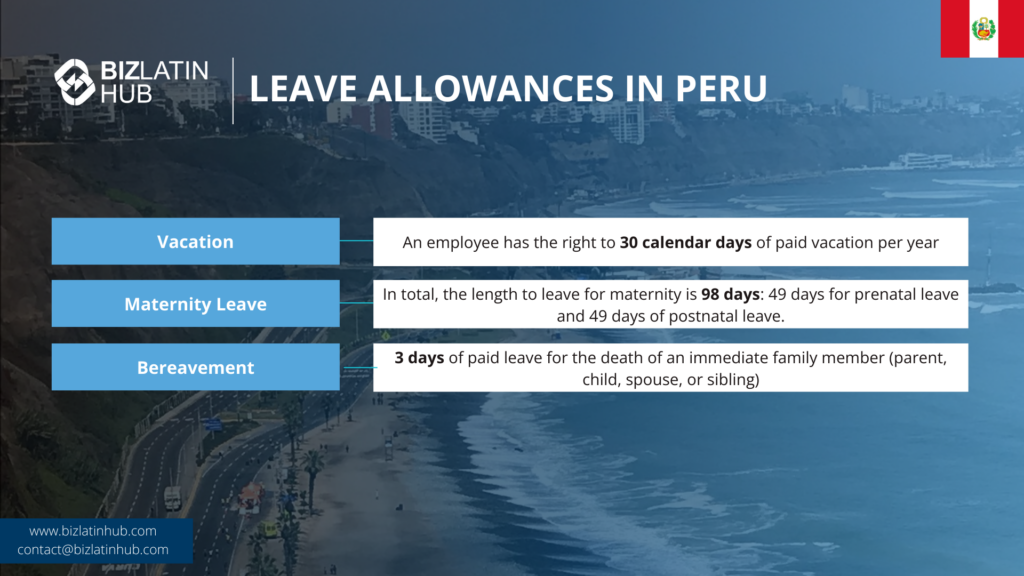
Employment laws in Peru also include laws in favour of employees:
Bonus: An employee gets two bonuses per year, one on Independence Day of Peru (1st of July) and the second on Christmas. The wage of the bonus is equivalent to the monthly salary.
Healthcare insurance: Employees and their family members are statutory affiliates to the public health service (ESSALUD). To provide healthcare insurance, the employer pays a contribution of 9% of the monthly wage of the employee to the public health system.
Compensation for Time of Service (CTS – Compensacion por Tiempo de Servicios):
This law is a social benefit to protect the existence of the employee after the termination of employment. This amount is accrued over time starting on the first day of work. To assure that the compensation is available, the employer must deposit the CTS twice a year (on the 15th of May and -November) to a bank account that can be elected by the employee.
For each completed calendar month, 1/12 of the wage must be deposited in the bank account. Therefore, at the end of the year, the whole deposit should be approximately equal to one monthly salary. To benefit from the CTS, the employee has to have been in the company for at least a full month.
Household allowance: An employee who has one or more children under the age of 18 is eligible to receive an additional monthly payment of 10% of the monthly minimum wage. These include children above the age of 18 who are pursuing higher education until the age of 24.
Fields of profit-sharing: Companies with more than 20 employees have to share their annual pre-tax profits with their employees.
- Mining companies, wholesale entities, retail businesses, and restaurants have to share 8% of their profits.
- Manufacturing, fishery and telecommunication companies have to share 10% of their profits, and
- companies that do not fall in these categories have to share 5% of their profits with employees.
It is important to note that profit shares for employees represent a deductible tax expense as part of Employment Laws in Peru.
| Category | Employer Obligations | Employee Rights |
|---|---|---|
| Work Week | Max 48 hours/week, 8 hours/day | Rest day weekly, overtime pay |
| Contracts | Register with the Ministry of Labor | Right to formal contract and legal protections |
| Social Security | Register with ESSALUD and pension system | Access to health care and pension benefits |
| Paid Leave | 30 calendar days/year after one year of service | Legal annual vacation and public holiday pay |
| Termination | Notice or indemnity, depending on cause | Right to severance, especially if no just cause |
Dismissal and Severance Rules
In general, there must be a lawful reason to end an employment contract which can be proven by the employer. For example, the incompetent productivity or the incapacity of the employee to complete his job. Another cause to dismiss an employee is based on his behaviour. Some reasons for dismissal include:
- Repeated attendance at work under the influence of alcohol or drugs;
- Deliberately damaging the employer´s or company’s property or goods;
- When acts of violence, serious breaches of discipline, disrespect, or insults of any kind is addressed against the employer or other staff members either outside or inside the workspace;
- Any misconduct of the employee including:
- A failure to fulfil his obligations under the employment contract
- Resistance to the relating work orders
- Failure to comply with work rules and regulations or occupational safety or health regulations
- Dissemination of false information to the employer with the intention of causing damage or gaining benefits;
- Serious criminal convictions;
- Failure to appear at the workplace for more than three consecutive days, absence of more than five days without a legal cause over a period of 30 calendar days, or absence of more than fifteen days over a period of 180 days;
- Repeated unpunctuality in which the employee already has been informed by the employer and where disciplinary actions like written warnings and suspension have been carried into execution.
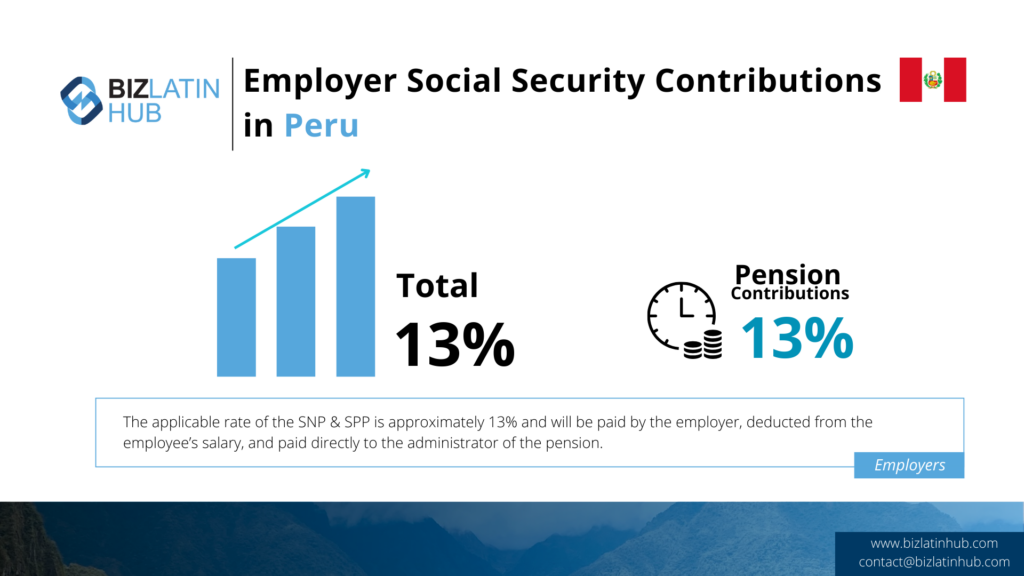
Can you employ foreign workers in Peru?
The working contract for foreign employees has a maximum term of 3 years but can be extended for a similar period of time – the labour contract must be approved by the Ministry of Labour. Once a foreign employer is hired, they have the same rights and benefits as local employees.
If you are planning on opening a business in Peru, it is important to remember that foreign employees shouldn’t exceed 20% of the whole workforce, and the total salary received by foreign employees shouldn’t exceed 30% of the total company payroll.
Exceptions regarding a higher salary can be made in the case of technical employees or management positions. Also, the working visa for a foreign employee is valid for one year but can be extended every year from therewithin. The foreign employee may lose his immigration status if he is out of the country for more than 183 days per year (12-month period).
Employment laws in Peru have fair agreements on both the employers and employees side. Although the limitations for foreign employees are handled fairly, it is important to remember that within every law there are several exceptions.
FAQs about employment laws in Peru
In our experience, these are the common questions we receive from our clients.
The labor laws in Peru include a work day of 8 hours a day or 48 hours a week (maximum). Employees are entitled to 30 calendar days of vacation for each complete year of service. Additionally, they receive bonuses equivalent to 2 salaries per year, which are given on national holidays and Christmas. These are overseen by the ministry of labor.
Working conditions in Peru include either 8 hours of work per day or a maximum of 48 hours per week. Employees are entitled to a minimum break of 45 minutes for lunch. Overtime work requires an agreement on the surcharge between the employee and employer.
Employees may work up to 48 hours per week, usually split across 5 or 6 days. Daily hours should not exceed 8, and overtime must be compensated.
The minimum salary in Peru is S/1,130 per month, which is equivalent to about USD$300. This increase took effect on Jan 1, 2025, and sponsoring employers are required to meet this minimum wage requirement.
Overtime pay in Peru is calculated based on the total salary offered to an employee. For the first two hours of overtime, the pay is 25% of the total salary. For any additional hours beyond two, the pay increases to 35% of the total salary. It is important for employers to clearly outline the overtime pay in the payslip.
Dismissals without just cause require compensation of 1.5 monthly salaries per year of service, up to a limit. Justified dismissals must follow legal procedures.
To terminate an employee in Peru, the following requirements must be met:
– The termination must be due to cases of force majeure, economic, technological, structural, or similar circumstances that involve more than 10% of the employer’s workforce.
– Employers must engage in bargaining with employees.
– Approval from the Ministry of Labour is necessary, although it is rarely granted for collective terminations.
– Employers must provide 6 to 30 days’ notice, depending on the reason for dismissal.
– The termination must be communicated in writing.
– Severance pay of up to twelve months is entitled to employees who are dismissed without cause.
Some reasons for dismissal include:
– Incompetent productivity.
– Incapacity of the employee to complete their job.
– Behavior.
The notice periods for dismissals for fair reasons are as follows:
– Dismissal due to lack of capability: 30 calendar days’ notice.
– Reasons related to major faults or misconduct: six calendar days’ notice.
When an employee decides to quit their job in Peru, they are required to provide their employer with a minimum of 30 days’ notice. On the other hand, if the employer decides to terminate the employee’s contract, they must give a notice period ranging from 6 to 30 days, depending on the reason for dismissal.
In the case of an employee being dismissed without a valid reason, they are typically eligible for severance pay, which can amount to a maximum of 12 months’ worth of salary. The amount of compensation is calculated as one and a half monthly salaries for each complete year of service, with a cap of 12 salaries.
However, if an employee voluntarily ends their employment contract, they are entitled to receive full severance benefits. This includes the employer being responsible for paying all the necessary benefits, such as sales incentives and a seniority premium equivalent to 12 days’ salary for each year of service.
Yes. All employment relationships must be formalized in written contracts and filed with the Ministry of Labor.
After completing one year of service, employees are entitled to 30 calendar days of paid vacation each year.
CTS is a mandatory severance fund contributed to by employers twice a year, helping protect workers against future unemployment.
Employers must register employees with ESSALUD and the pension system (ONP or AFP), as well as provide insurance against accidents and illness.
No. Hiring locally requires a Peruvian legal entity or partnering with an Employer of Record (EOR) service for compliance.
Why invest in Peru?
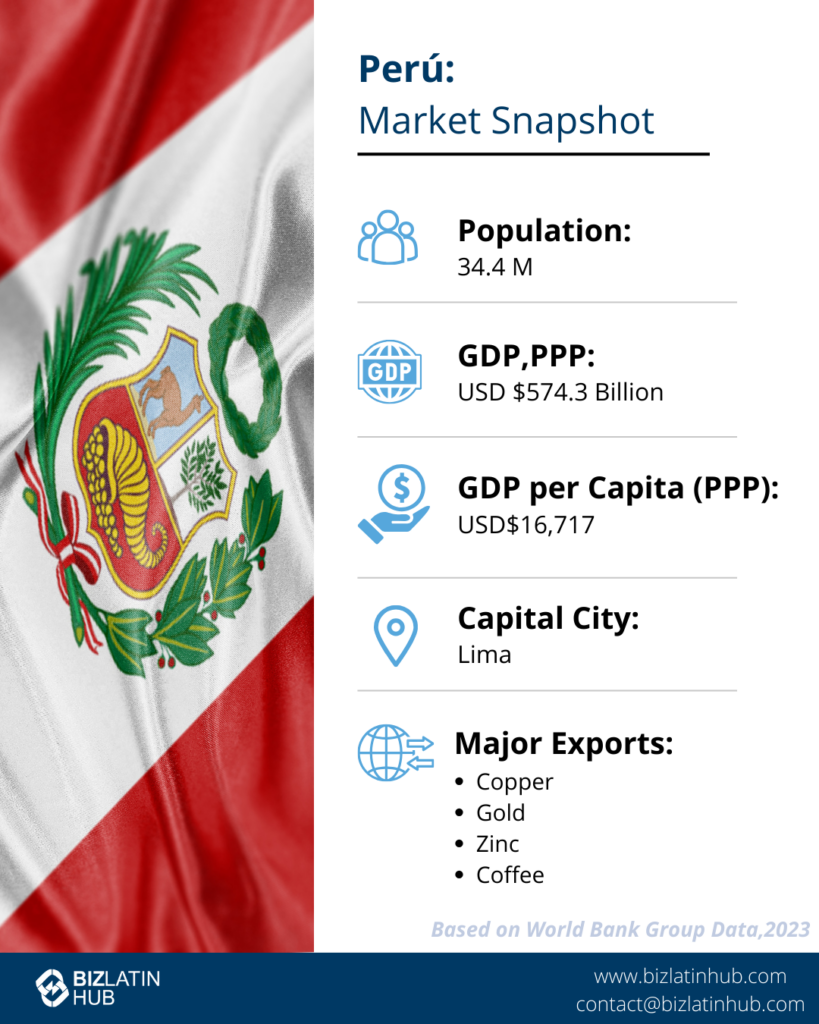
The population that is between the age of 15 and 64 years old stands at 20 million and represents the number of people who are allowed to work legally in the country. Those between the ages of 15 and 18 must have parental permission to work as well as have approval from the Ministry of Labour in Peru.
Since several free trade agreements in Peru have been signed, the national poverty rate has decreased from 58.7 percent to 21.8 percent. This is due to former president Pedro Pablo Kuczynski’s focus on economic reforms and free-market policies with the goal of boosting investment in the country.
While the country is not generally as wealthy or developed as its neighbours, there is ample room for growth and a bright future ahead. After a fairly rocky and unstable couple of years, the country is very much on an even keel again and eager to welcome foreign direct investment.
Biz Latin Hub can help you with employment laws in Peru
If you would like to get more information regarding labour law in Peru or are interested in investing or forming a company in Peru, please feel free to contact us now.
Our team of local and foreign experts at Biz Latin Hub offers a wide range of professional multilingual back-office services that can help you start your company in Peru today!

